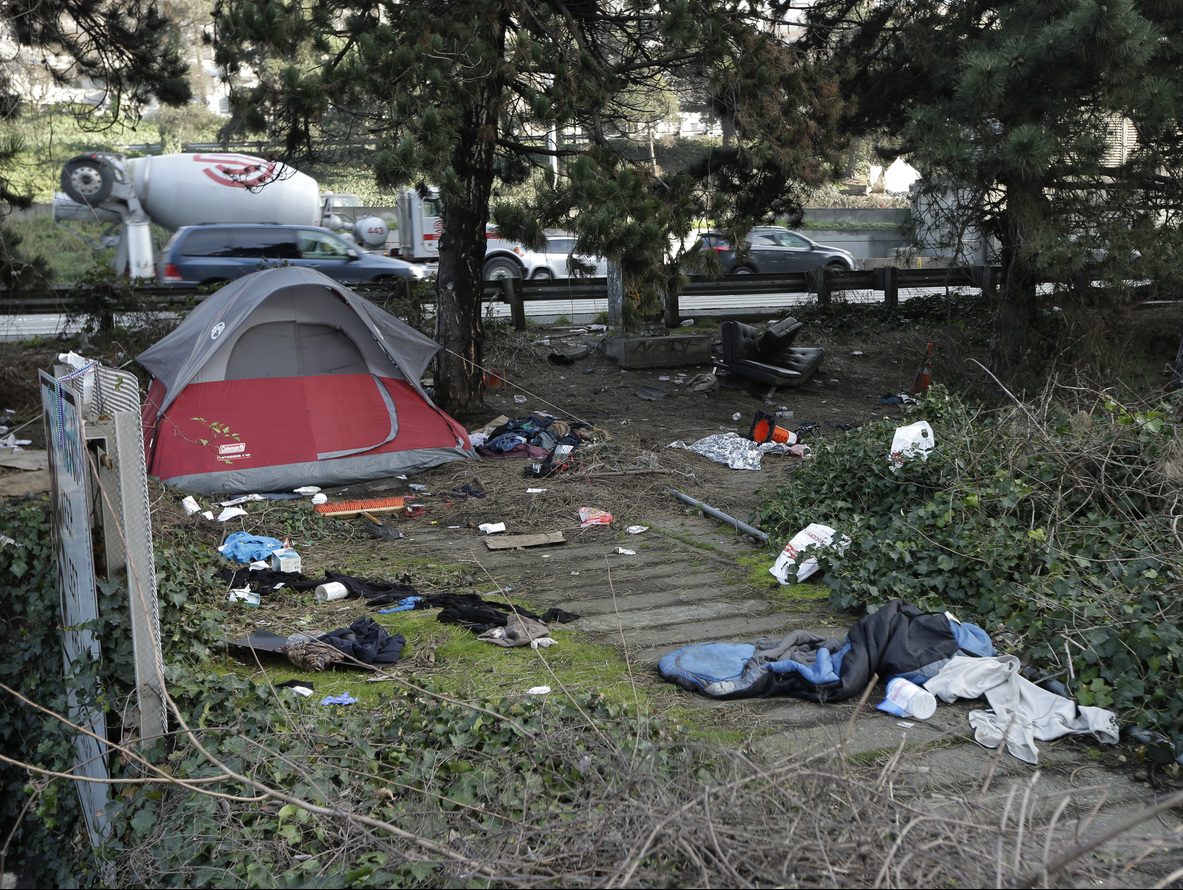This story originally appeared in The Seattle Times on Oct. 24, 2017.
Progress is being made in response to the Greater Seattle area’s homeless crisis, but much more needs to be done.
Seattle and King County must continue full-speed ahead with reforms and improvements to homelessness response.
That was resoundingly clear at a Tuesday forum with top city and county human-services leaders and national expert Barbara Poppe.
This was timely as voters choose a new Seattle mayor and two city-council members, and King County voters consider a $354 million, human-services levy.
The forum was organized by the Seattle Metropolitan Chamber of Commerce, Downtown Seattle Association, Visit Seattle and the Alliance for Pioneer Square, with support from Starbucks.
Hallelujah moments came when experts said the region needs to better coordinate governance and funding of homeless services, now dispersed through multiple agencies.
The panel also agreed that performance-based contracts will bring more accountability to the network of vendors providing homeless services.
Improvements are also needed to more quickly move people from shelters into longer-term housing. The panel blamed rental low vacancy rates for impeding this transition, and the hot real estate market is a huge challenge.
But weak program execution may also be a factor. Seattle Human Services Director Catherine Lester acknowledged that the city is now reworking its liaison program that assists with rental placement.
Poppe’s clear-eyed critiques are especially welcome.
She chided the region for its overemphasis on responding to the crisis with costly housing projects. They end up too expensive for the poor to occupy without subsidies, she said, adding that existing buildings are more affordable.
New rental units cost around $350,000 apiece to build, versus the $10,000 yearly cost to provide rental vouchers until recipients are back on their feet.
Poppe’s strongest words were aimed at the “tiny houses” that are being used to house some homeless, including families, in Seattle.
Don’t be fooled by the cute name. They’re sheds, not houses, with no running water or plumbing. Poppe said it’s awful that Seattle has families in these sheds. They violate United Nations human-rights standards and cause trauma that can lead to lifelong brain damage in children, she said.
On a brighter note, King County has done good work improving the quality of data gathered by organizations delivering homeless services.
This is essential to improving the response and ensuring that precious dollars aren’t wasted on programs that aren’t working as well as they should.
If vendors don’t provide good data, they no longer get paid, said Adrienne Quinn, director of the county’s Department of Community and Human Services.
Seattle is playing catch-up. It’s in the process of issuing contracts that will require proof of performance, overdue for an entity spending $89 million a year on human services.
Yet there’s pushback from vendors. Some say they lack resources to manage the reporting or the performance goals are unattainable.
They’re getting support from politicians to slow-walk this reform, which is a terrible idea. Disruption, not protection, of the current system is needed.
Politicians should first and foremost be fighting for the thousands of homeless people needing better outcomes, and residents and businesses generously funding service.
Lester said she’s “always curious” about the negative connotation that accountability has in this realm. No kidding.
For the sake of those suffering on our streets, bring more accountability with haste, to be sure we’re providing services that work and help as many people as possible.
Editorial board members are editorial page editor Kate Riley, Frank A. Blethen, Donna Gordon Blankinship, Brier Dudley, Mark Higgins, Melissa Santos, William K. Blethen (emeritus) and Robert C. Blethen (emeritus).
